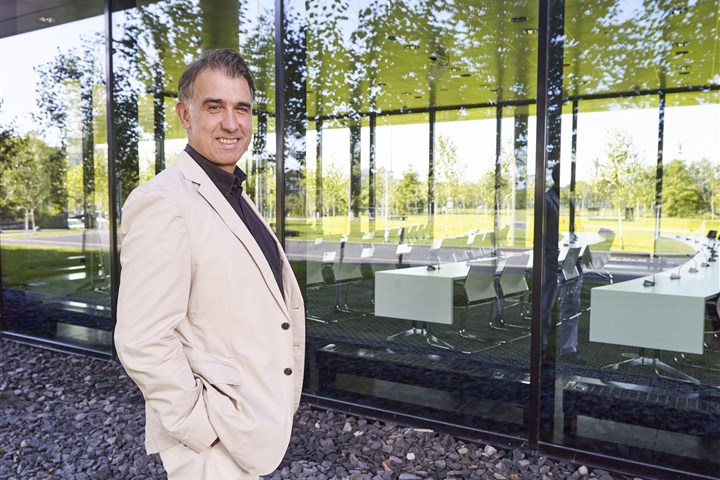The first World Data Forum was held in Cape Town, South Africa from 15 to 18 January this year. Over 1,500 participants from 100 countries - including three from Statistics Netherlands (CBS) - attended this United Nations event. More than 100 sessions were organised to discuss proposals for innovative ways to collect, analyse and communicate data. The CBS delegates gave a number of presentations and workshops on Sustainable Development Goals (SDGs), Urban Data Centres, Big Data and Open Data.
Urban Data Centres
The first UN World Data Forum gathered data producers, researchers, statisticians, policymakers, academics and users from across the world to discuss the best ways to use data for sustainable development. Robert Hermans, programme director at CBS for the Urban Data Centres: ‘We gave around ten presentations about Urban Data Centres, Big Data, Open Data and the SDGs. These all centred on data input for policymaking.’
Partnerships
One key focus of the Forum was forming partnerships. ‘The statistics office of Argentina, for example, wants to work together with the CBS in the area of Urban Data Centres. In May this year the CBS will organise a workshop there, and the two statistical organisations will co-sign a partnership agreement. South Africa’s Ministry of Finance has also asked the CBS for advice about an Urban Data Centre for its City Support Programme’, says Hermans. At the opening of the World Data Forum, Enrique Giovannini, co-chair UN Independent Expert Advisory Group on the Data Revolution for Sustainable Development, praised the CBS in his welcome speech for its publication of the report ‘Measuring the SDGs: a first picture for the Netherlands’. The CBS is the first country in the world to take stock of the national situation in terms of the SDGs. The publication also includes a first European comparison. ‘We received a lot of positive feedback for this and a large number of participants asked us about our approach.’
Pioneers
In addition to representatives from the CBS, Lewis Dijkstra also attended the meeting. He works at the EU’s Directorate General for Regional and Urban Policy, which pioneers developments in regional and urban data. ‘We are working closely with Eurostat to expand official statistics in this area. In addition, we are actively looking for new sources such as big data and remote sensing. We are also increasingly using geographic information systems to calculate new and better indicators by combining various sources.’
Progress
Dijkstra describes how much progress has been made in the last ten years in terms of finding new data sources for regional and urban analyses. ‘A good example is our State of European cities report, that we co-published with UN Habitat at the end of last year.’ In spite of the results up t to now, it is still sometimes difficult to access big data, and the data themselves sometimes turn out to be incomplete. ‘This is the case for data from commercial, as well as public and semi-public organisations.’ Which countries in Europe are the forerunners in the area of regional and urban data-based policymaking? Dijkstra: ‘That is quite difficult to answer. I see a lot of countries producing and using more data and using them in different ways for policymaking. Denmark, Sweden and Finland have high-quality registers and therefore a lot of regional and urban information about income and poverty. This is important for a regional approach to poverty. The United Kingdom produces data at district level to support policymaking at this level. I myself see more future in a more intensive use of registers, the land registry for example.’ Dijkstra is very enthusiastic about CBS’ initiative to work together with a number of municipalities in the Netherlands in setting up Urban Data Centres. ‘It is a clever and innovative project. It shows how cities are on the demand side for better quality data, and how adequately the CBS has responded. I expect them contribute substantially to municipal policymaking.’
Harmonised definition
Back to the World Data Forum. What, in Dijkstra’s view, were the key takeaways? ‘The SDGs are offering the challenge to collect more data and, for the first time, to collect data at the city level. On the one hand this means we have to find data with a high spatial resolution, and we have to work towards a harmonised definition of the concept of a ‘city’. And in doing this we clearly have to look further than official sources. The next step is collaboration of the European Commission, the OECD and the World Bank in the coming period to develop a harmonised definition and to test it for a certain city. South Africa is working with us on this, also to look at the extent to which the definition can be used for international comparisons.’
